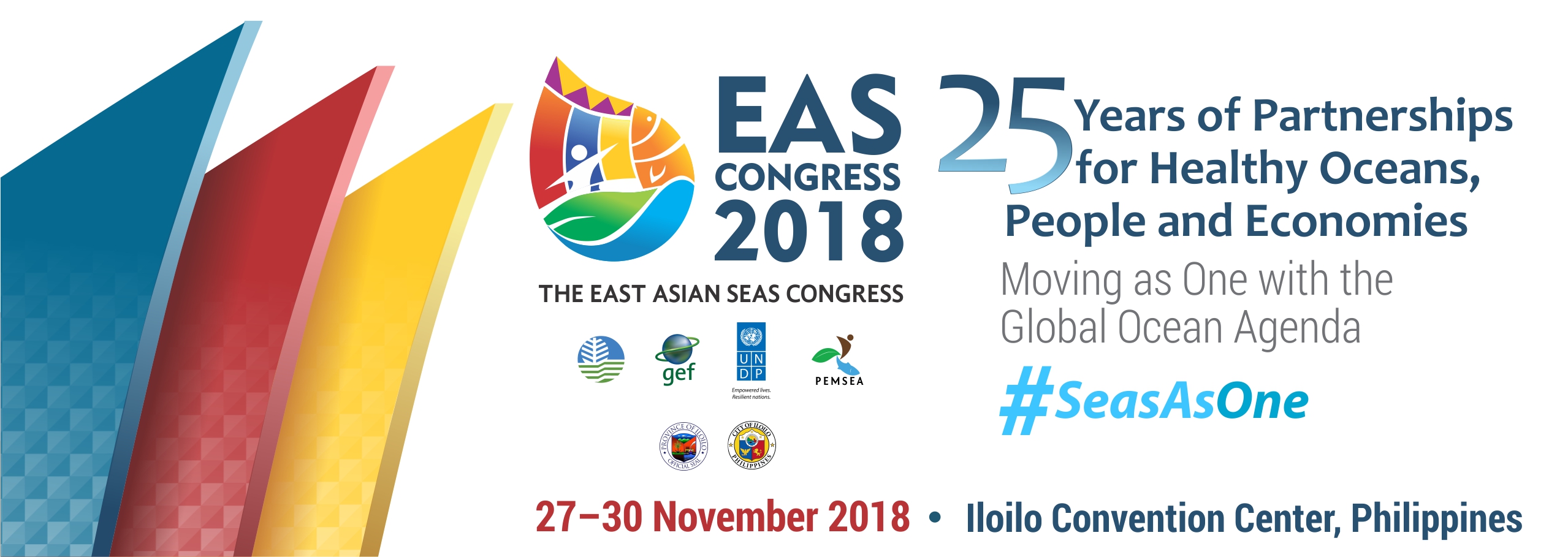Humans of East Asian Seas (EAS) Stories

One of the key activities to commemorate PEMSEA's 30th anniversary, the EAS Partnership Council launched the search for Humans of East ASIAN Seas (EAS). The Humans of EAS honors and celebrates the work of local coastal and marine champions from among the many local personalities and partners in the last 30 years of collaborative actions to bring about transformational change in the EAS region.
30 Humans of EAS who made significant contributions to local/national/regional efforts to promote sustainable developments of seas and coasts of East Asia were selected by a panel of judges among several nominees recommended through an open call that lasted for six months.
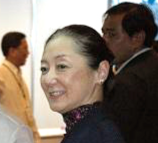
Masako Bannai Otsuka
Director, Japan for the International Ocean Institute (Retired), Ocean Policy Research Institute (OPRI) (JAPAN)
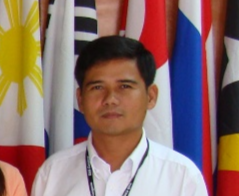
Prak Visal
Director, Division of Public Relations, and International Cooperation (CAMBODIA)
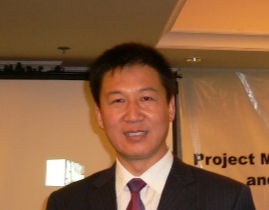
Wang Jinhe
Deputy Director, Dongying Municipal Bureau of Marine Development and Fisheries (CHINA)
Ms. Masako Bannai Otsuka pioneered the Integrated management System (ICM) startup phase in Japan, bringing the global and East Asian experiences of implementing ICM in Japan. Her work with the national and local governments facilitated, promoted and help launched projects in ICM model sites across Japan (including: (1) Miyako City, Iwate Prefecture, (2) Shima City, Mie Prefecture, (3) Obama City, Fukui Prefecture, (4) Bizen City, Okayama Prefecture, (5) Sukumo City and Otsuki Town, Kochi Prefecture, (6) Nagasaki Prefecture, and (7) Taketomi Town, Okinawa Prefecture). Her expert contribution included the documentation and dissemination the (latest) ICM information domestically through writing more than 400 articles on national and international ICM implementation on the Ocean Policy Research Foundation blog.
Her (proven) technical expertise allowed for the successful coordination of diverse stakeholders of the ICM sites; and the setting up of study groups and local associations of citizens, companies, local government officials, and others sectors. Furthermore, her effort in planning and preparing for the PEMSEA Network of Local Government (PNLG) conference held in Shima City a model ICM site in Japan, in 2013 was able to connect the local government officials and local coastal stakeholders of Shima City with other participants from countries of the East Asian Seas region. Her efforts also contributed to Shima City’s formulation of basic plans that included the Shima City Sato-umi Creation Basic Plan (also known as the Shima City Basic Plan for the Comprehensive Management of Coastal Areas) under the slogan "Earn, learn and play! Shima, a new Sato-umi city". As a result, the brand, which utilizes Shima City's resources, has gained worldwide recognition.
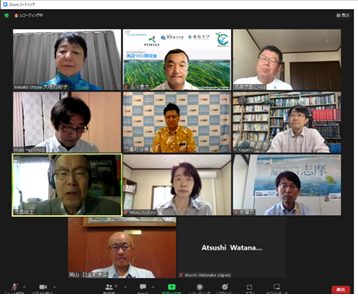
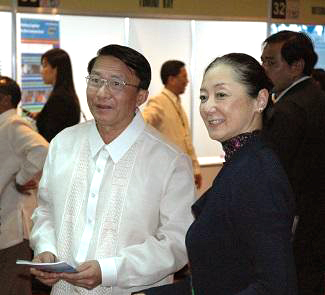
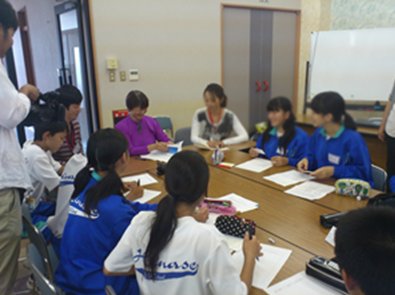
Mr. Prak Visal, was involved as project leader during the establishment of the Integrated Coastal Management Program (ICM) in Preah Sihanouk in 2001. Preah Sihanouk was one of PEMSEA’s ICM demonstration sites and the first coastal province in Cambodia to implement ICM. His determination and persistent efforts in facilitating local stakeholder consultations led to the development of the Environmental Profile, Sihanoukville Coastal Strategy and its Implementation Plan, Coastal Use Zoning Plan, and Tourism Development Plan. His leadership and ability to work with the local communities; and national and local authorities led to the initiation and implementation of various projects in Preah Sihanouk such as the community-based solid waste management in Sangkat 4; habitat protection and rehabilitation in Koh Rong Island, Kampong Smach and other areas, and water source rehabilitation and sanitation in Stung Hav District; livelihood management, sustainable coastal tourism and beach zoning management scheme in Ochheauteal Beach; and habitat protection and management of about 1,060 hectares of mangrove areas in Otress and Tomnob Rolok, Stung Hav and Kompong Smach, Prey Nup Districts. Through his guidance, Preah Sihanouk leveraged ICM work to further engage with other development partners such as the International Center for Environmental Technology Transfer, International Union for Conservation of Nature Cambodia Climate Change Alliance, UN-Habitat, Fauna and Flora International, Fisheries Action Coalition Team on capacity and partnership building to implement various actions on habitat protection, climate change adaptation, pollution reduction; and the establishment of MPA/marine fisheries management areas, Ocean Park, and develop a Smart City program.
The ICM implementation in Preah Sihanouk covers 176 km. of coastline and 2,397 km2 land area providing practical solutions to coastal and marine management issues, and benefiting over 200,000 stakeholders in the province. These benefits include: a boost tourism and length of stay; increased job opportunities; strengthened government and private sector participation; improved political commitment to beach and environmental management; and pollution prevention.
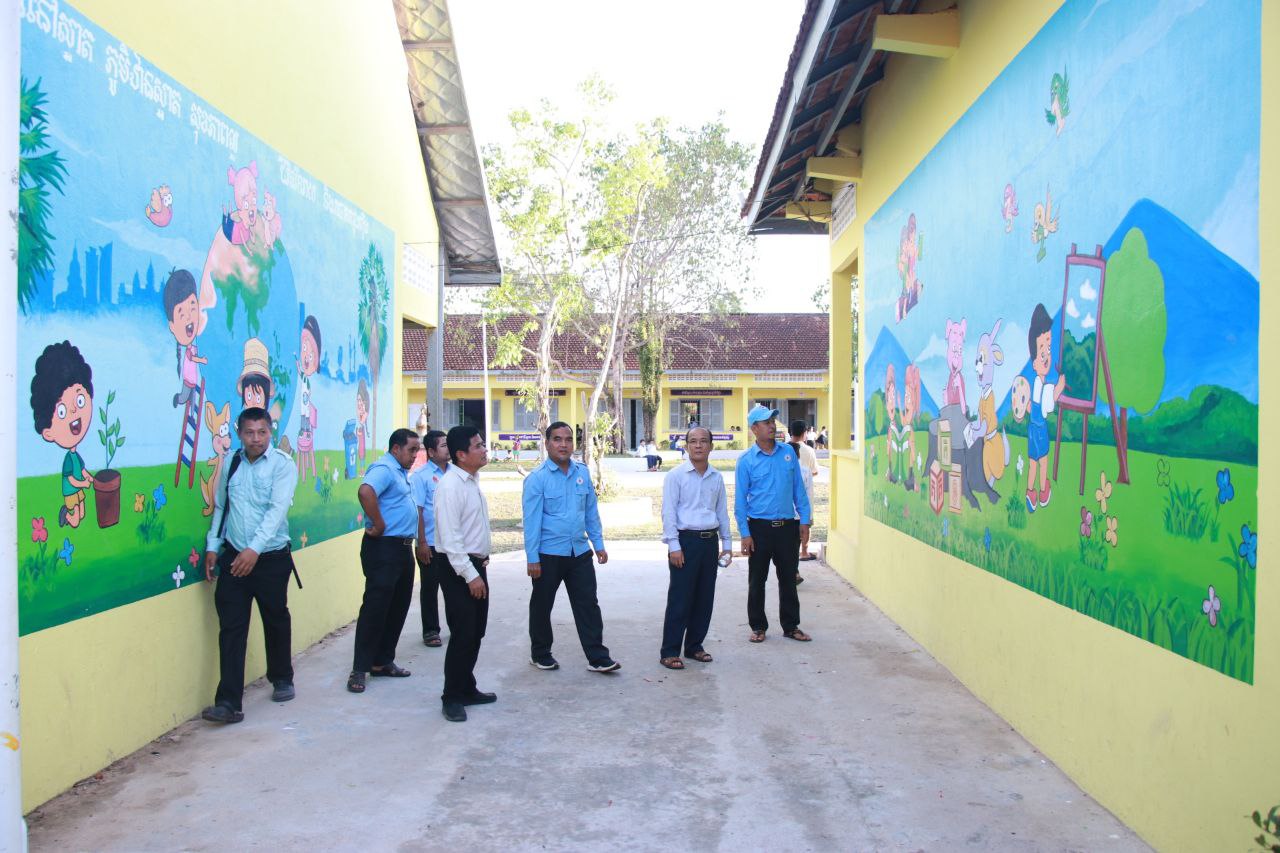
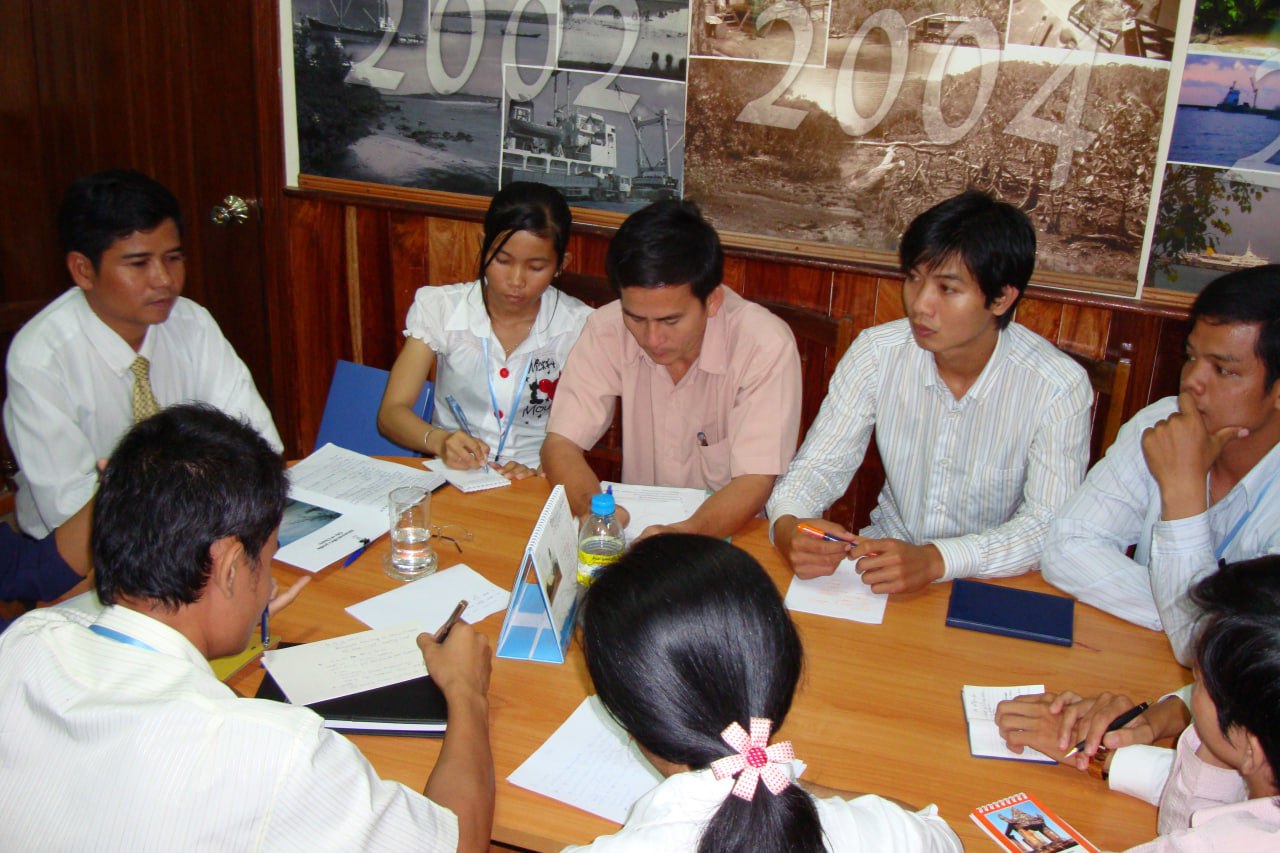
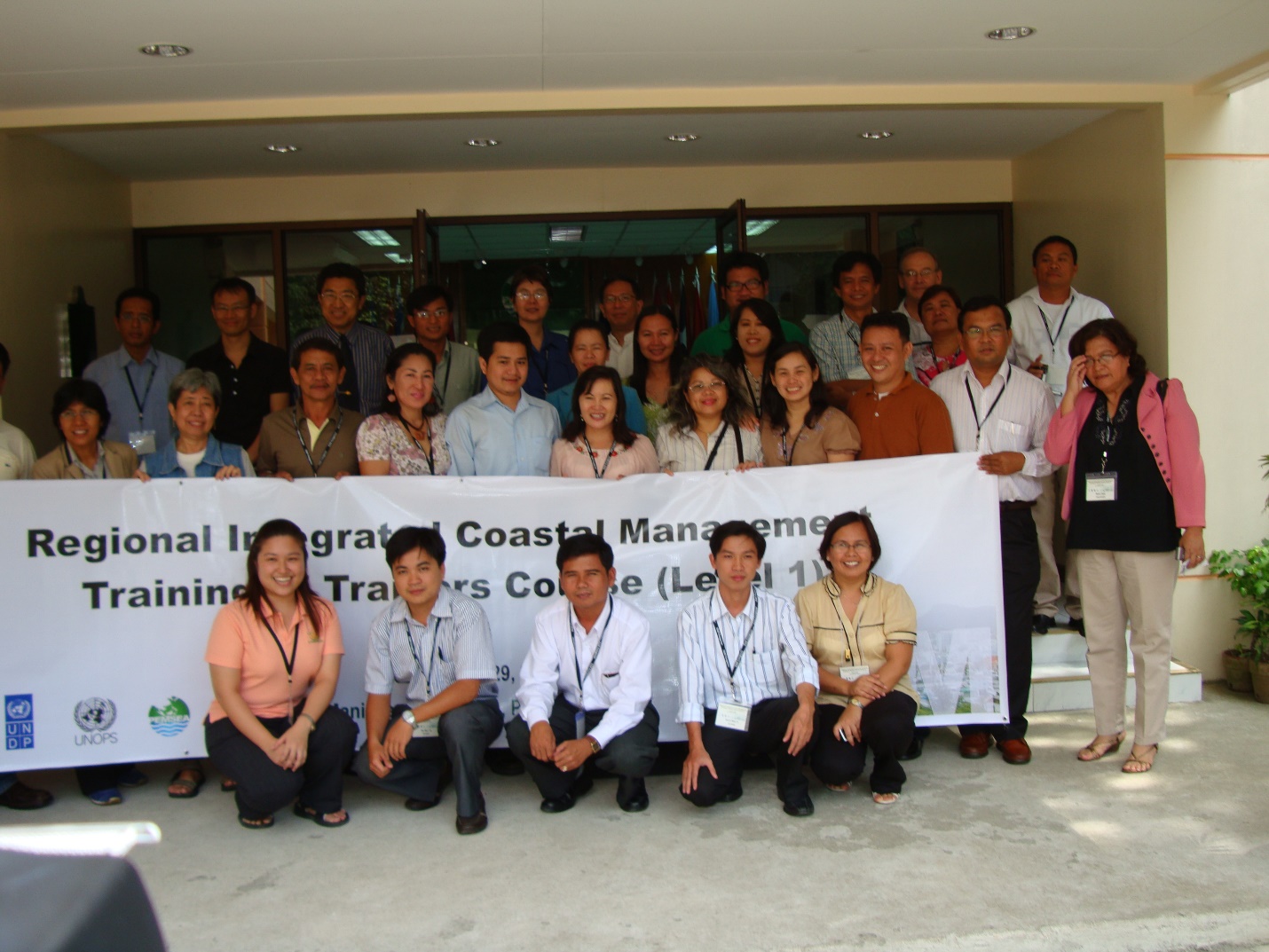
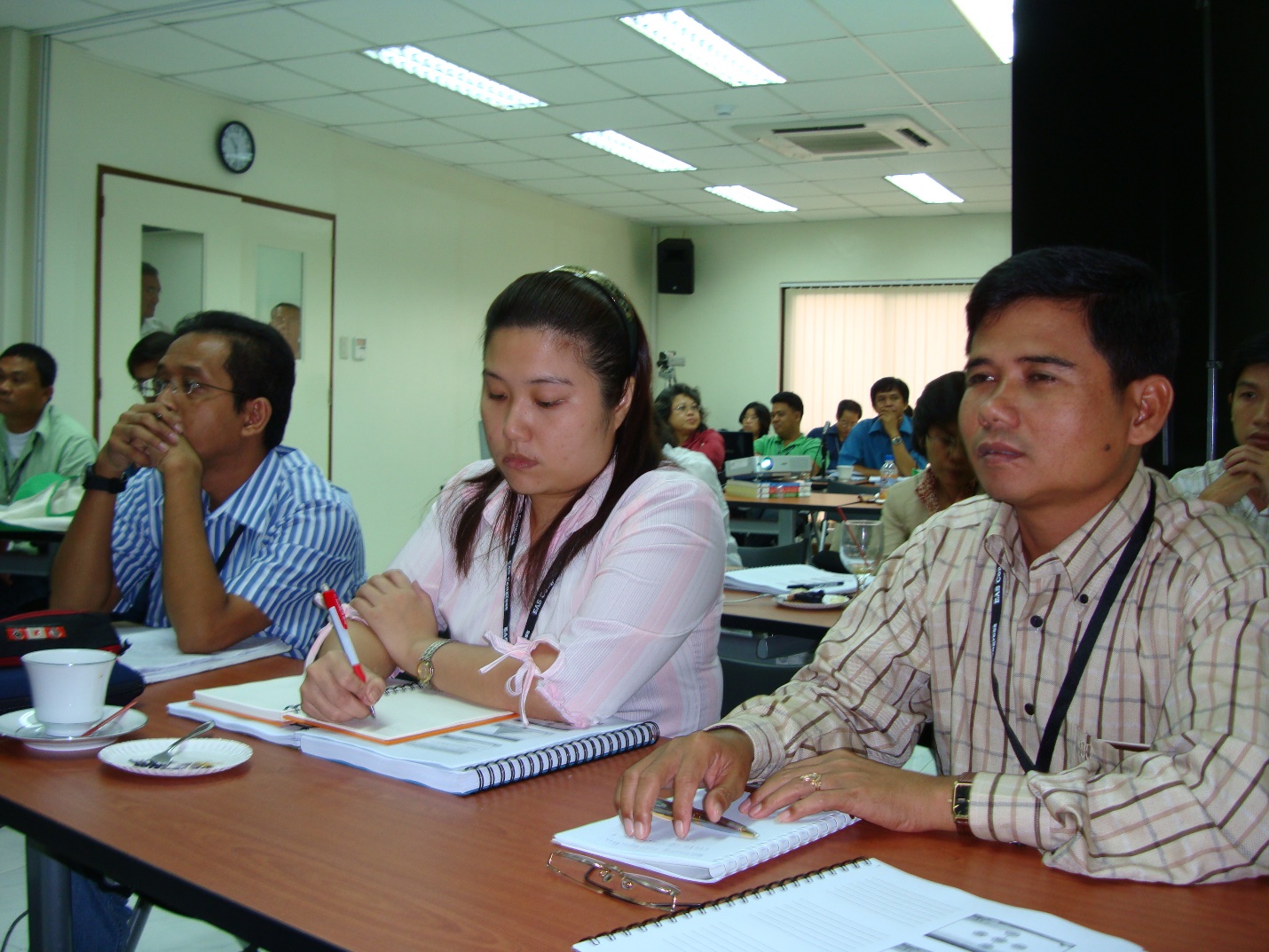
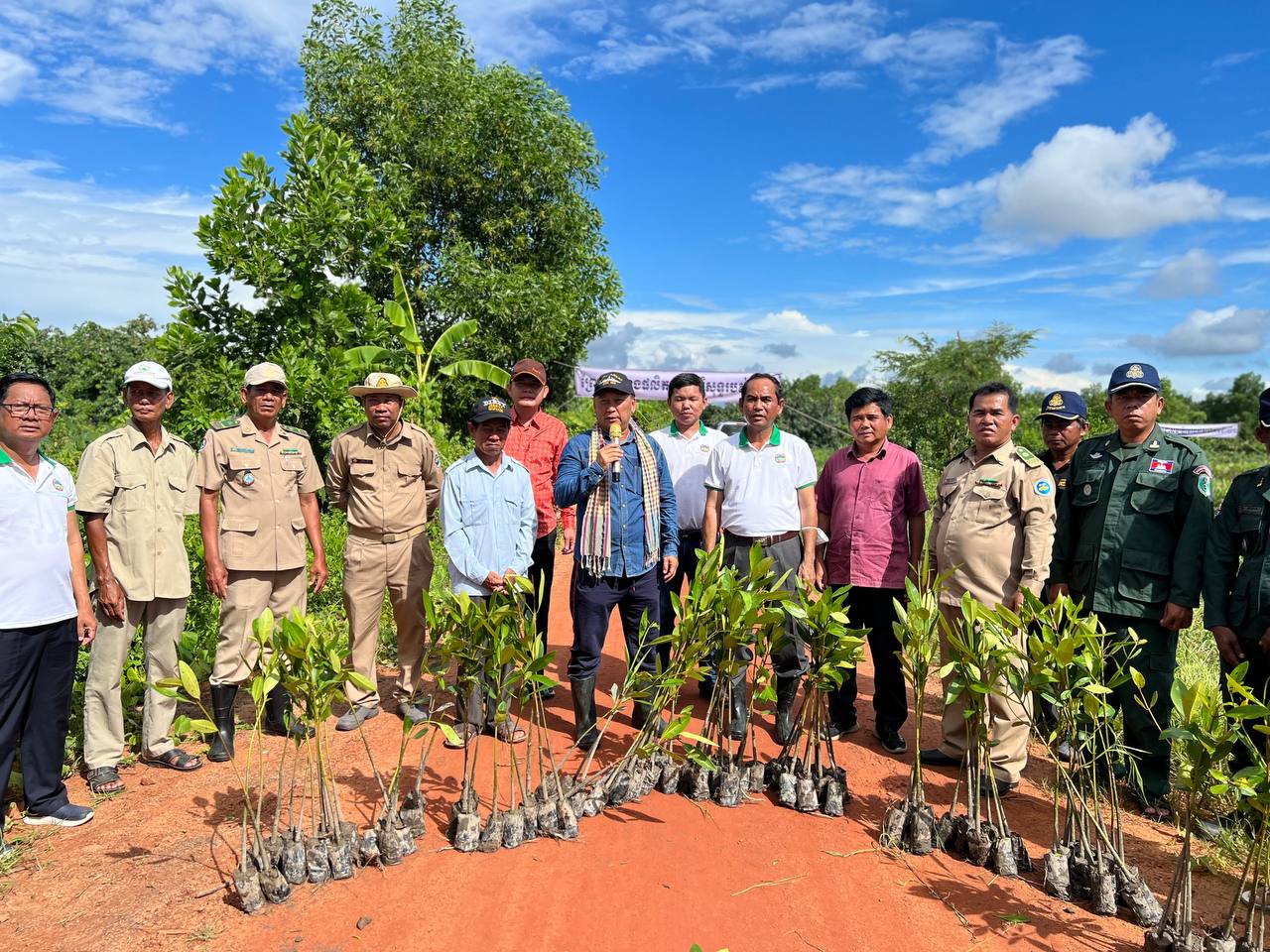
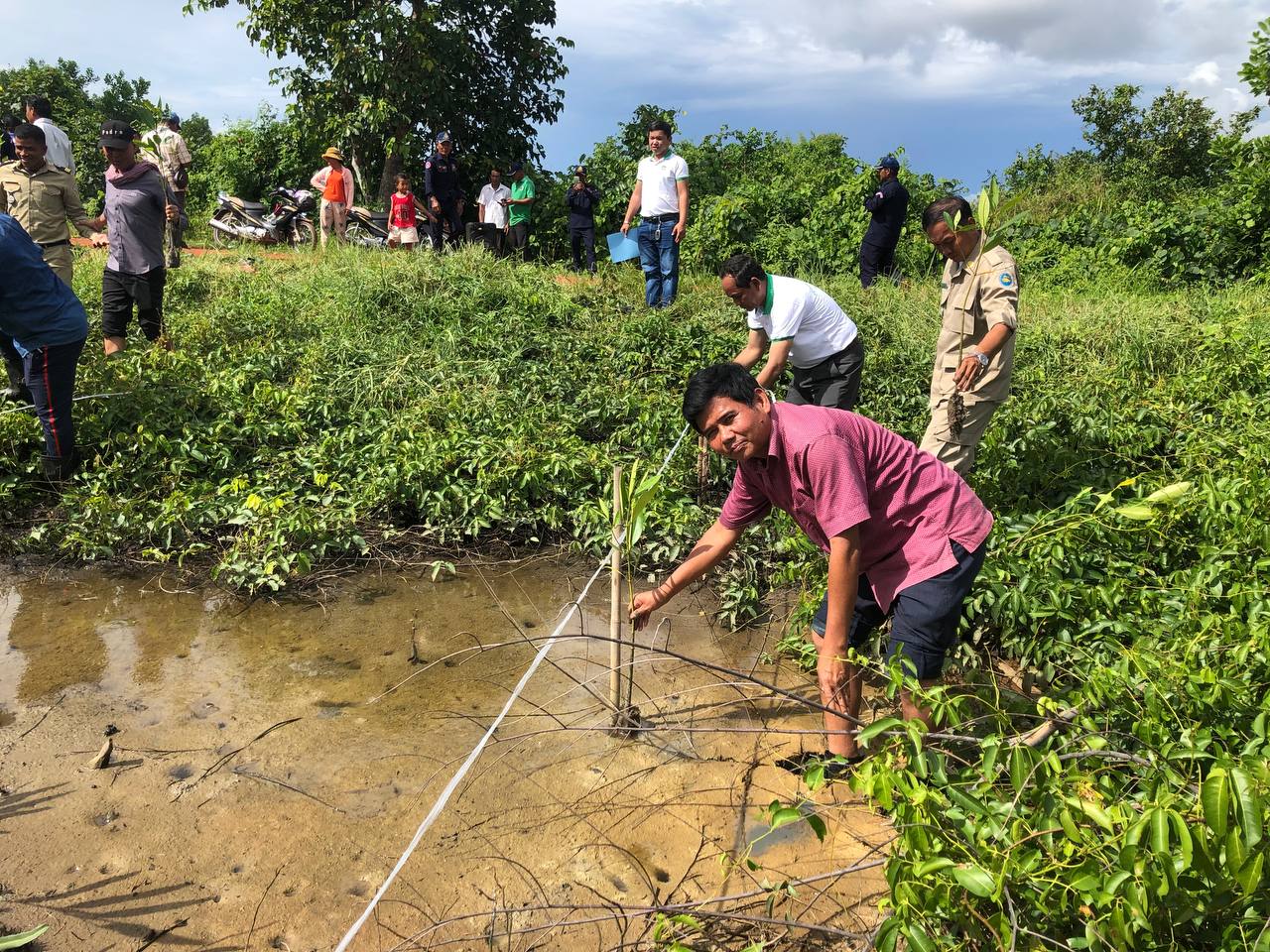
Dr. Wang Jinhe introduced the concept of Integrated Coastal Management system in the cities of Northern China. Working for the city of Dongying, he was instrumental in preparing the application of Dongying as an ICM Demonstration Site of PEMSEA in 2005 and a member of PEMSEA Network of Local Government (PNLG) in 2007. His effort contributed to the publication of the Dongying State of Coast Report in 2010 and the organization of PNLG Annual Meeting in Dongying in 2011 during which the Dongying Declaration on Building a “Blue Economy” through Integrated Coastal Management was signed. He documented and disseminated several best practices in coastal management of Dongying to the rest of the region, notably, “Transforming Traditional Pond Aquaculture to Modern Ecological Aquaculture in Dongying” and “The Preparedness and Response Planning of Dongying City under the ICM Coordination Mechanism”. He also provided excellent ICM Cases of Dongying for the EAS region, including Dongying Modern Fishery Demonstration Zone, Marine Protected Area Management Performance Improvement, Guangli River Basin Integrated Management, Coastal Vulnerability Assessment, and Marine Ranching. His significant support for the implementation of the SDS-SEA and the establishment of the ICM System in Dongying resulted to Dongying achieving ICM System Level 1 certification in 2015 and subsequently ICM System Level 2 certification in 2020. To date, Dongying remains a model city that works to maintain the balance of ecosystem management and restoration with economic growth and prosperity.
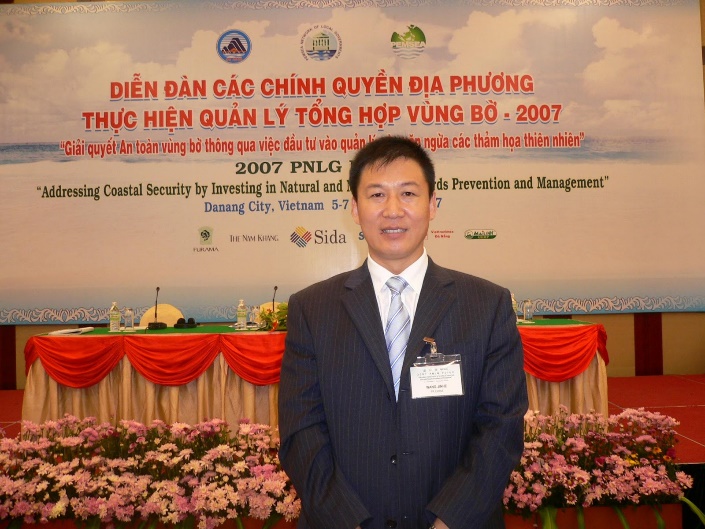
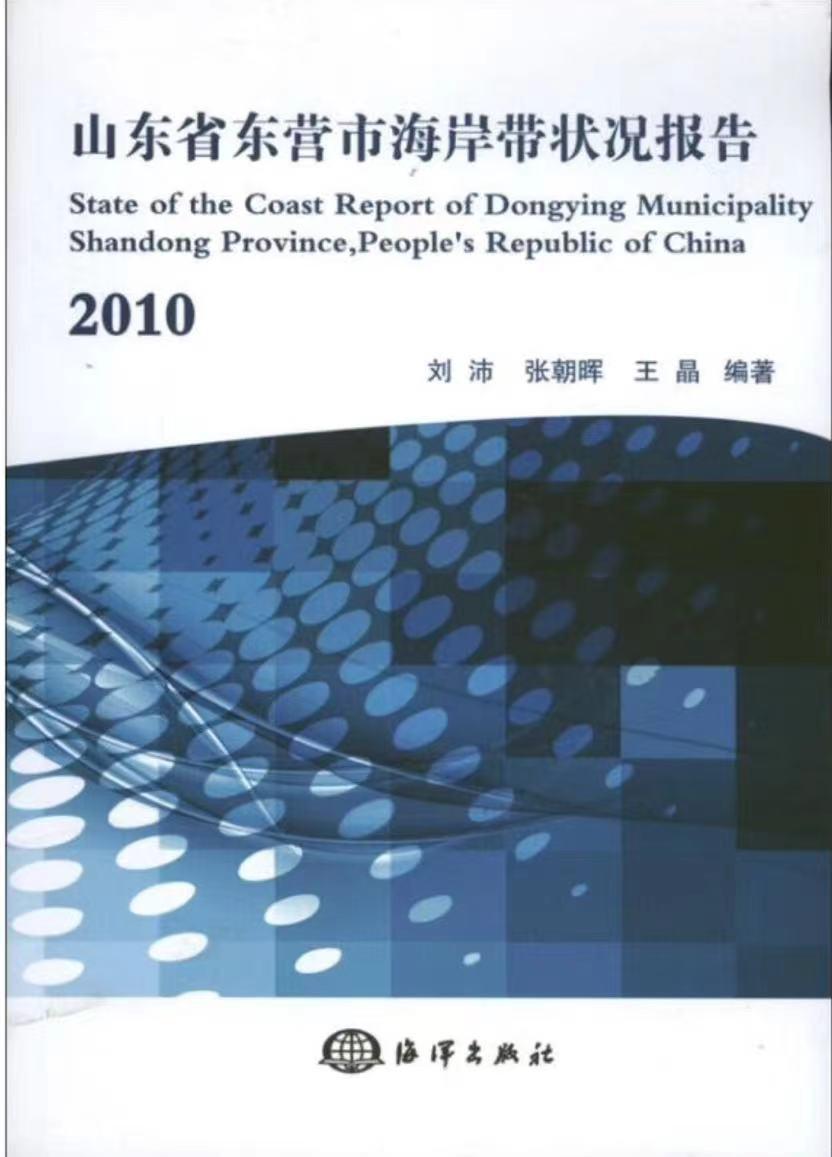
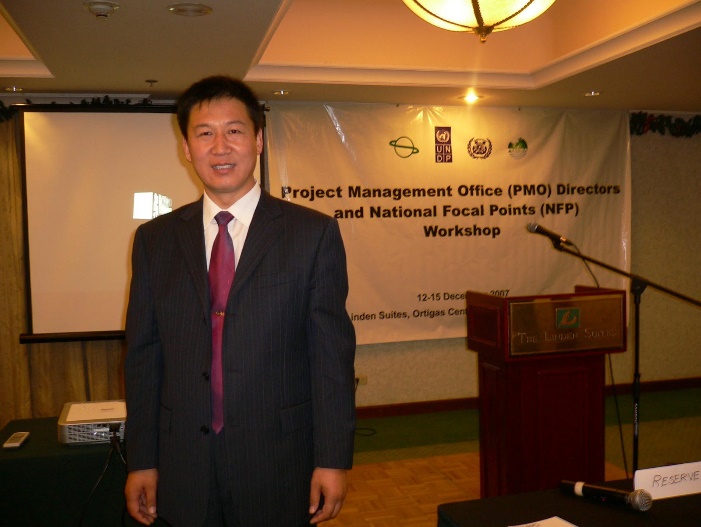
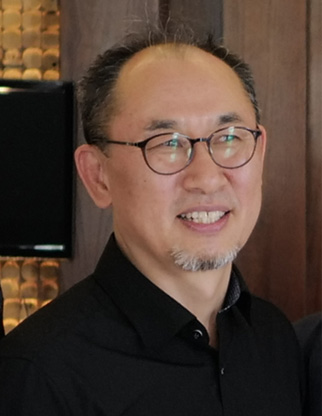
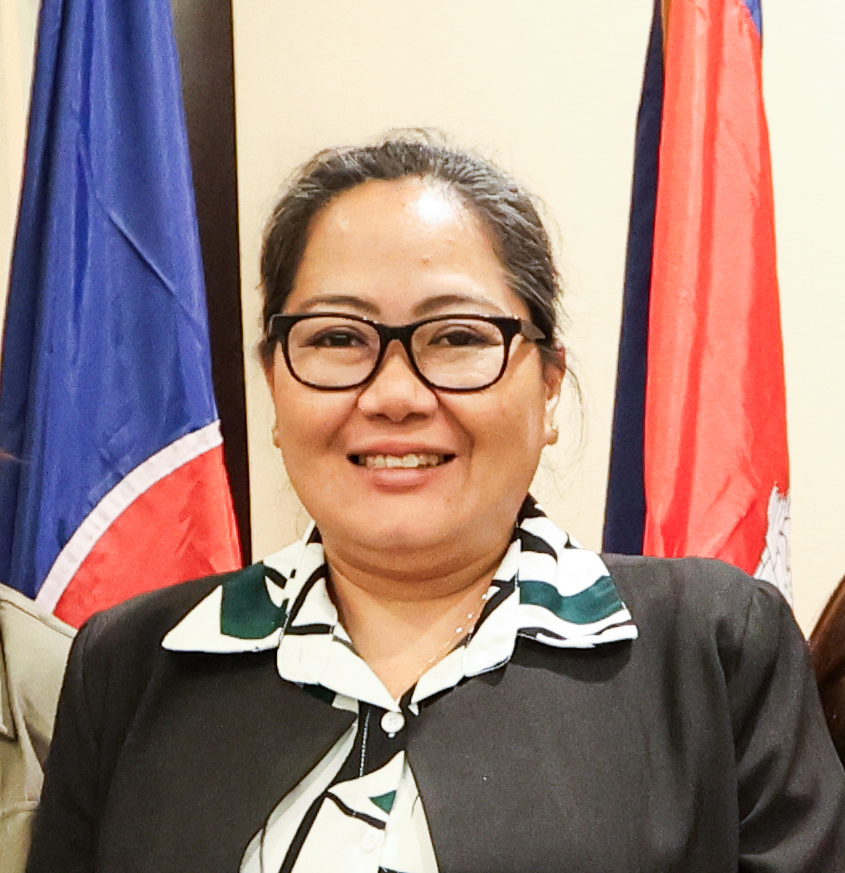
Anabelle L. Cayabyab
Provincial Environment and Natural Resources Officer, Provincial Government of Cavite (PHILIPPINES)
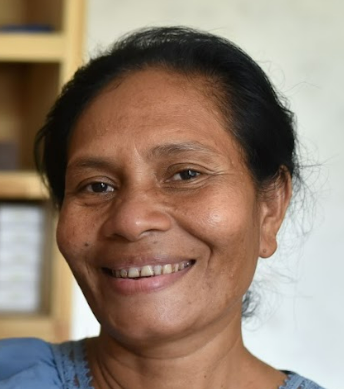
Metri Nainatu
Leader of Women Community Group in Oeseli Village, Rote Ndao District (INDONESIA)
Dr. Nam Jungho was involved in the organization of several training programs, on-site surveys, and policy-related gatherings in cooperation with PEMSEA Resource Facility over the past 24 years; and continues to provide policy advice to the Ministry of Ocean and Fisheries in RO Korea as a country partner of PEMSEA. His ICM on-site support resulted in the enhancement of coastal management in various sites in RO Korea and Cambodia. His research cover integrated coastal planning, climate change adaptation, marine environment management, marine ecosystem protection, coastal conflict resolution, transboundary marine environmental affairs, official development assistance, marine science and technology application has helped improve sustainable coastal management practices in the East Asia region and contributed to the formulation of marine policies for the RO Korea government and establishment of legal and institutional mechanisms for sustainable ocean and coasts.
He has been participating in panels and working committees on global and regional environmental issues and their related activities, including on land-based activities control, marine debris management, coastal watershed management, transboundary protected areas etc in PEMSEA, COBSEA, NOWPAP, Yellow Sea Large Marine Ecoregion and the World Ocean Forum.
Ms. Anabelle L. Cayabyab facilitated the collaboration of the provincial government of Cavite with various government agencies, non-governmental organizations, people's organizations, and other stakeholders such as the private sector and the academe to apply various Integrated Coastal Management (ICM) initiatives in the province. Her efforts contributed to ensuring the effective management of the province's coastal and marine areas. She spearheaded the development of the State of the Coast baseline report for the Cavite province guided by PEMSEA Resource Facility in partnership with various stakeholders and the organization of the Cavite Water Summit.
The ICM activities in the province continue to address issues including coastal and ocean governance, natural and man-made hazard prevention and management, habitat protection, restoration and management, water use and supply management, pollution and waste reduction management, as well as food security and livelihood management and was able to achieve ICM System Level 1 Certification in 2015.
Ms. Cayabyab's efforts álso resulted in the effective implementation of various specific project in Cavite Province including the ASEAN-Norwegian cooperation project on local capacity building for reducing plastic pollution in the ASEAN region (ASEANO Project); and the Coca-Cola Foundation Philippines Inc., Ecological Solid Waste Management Project (ESWMP) in partnership with Caritas Diocese of Imus Foundation and in close collaboration with Cavite PGENRO.
Mrs. Metri Nainatu led the establishment of the Ita Esa group (meaning 'we are one') venture that profoundly impacted the lives and livelihoods of numerous women fishers in her community in the heart of Rote Ndao District, East Nusa Tenggara Province. Her transformative journey from a fisher to an entrepreneur has uplifted the life ignited a path for coastal communities to tread towards a more adaptive and resilient future.
In Indonesia, ATSEA-2 has been collaborating with local government and related stakeholders to support the betterment of marine and coastal management as well as resilience building amongst community in Rote Ndao District in East Nusa Tenggara Province, Merauke District in South Papua Province, and Aru Archipelago in Maluku Province.
Mama Metri as she is fondly called, led the Women Community Group in Oeseli Village which provided alternative livelihood development through sustainable soap production linking economic sustainability; and preservation of coastal ecosystems.
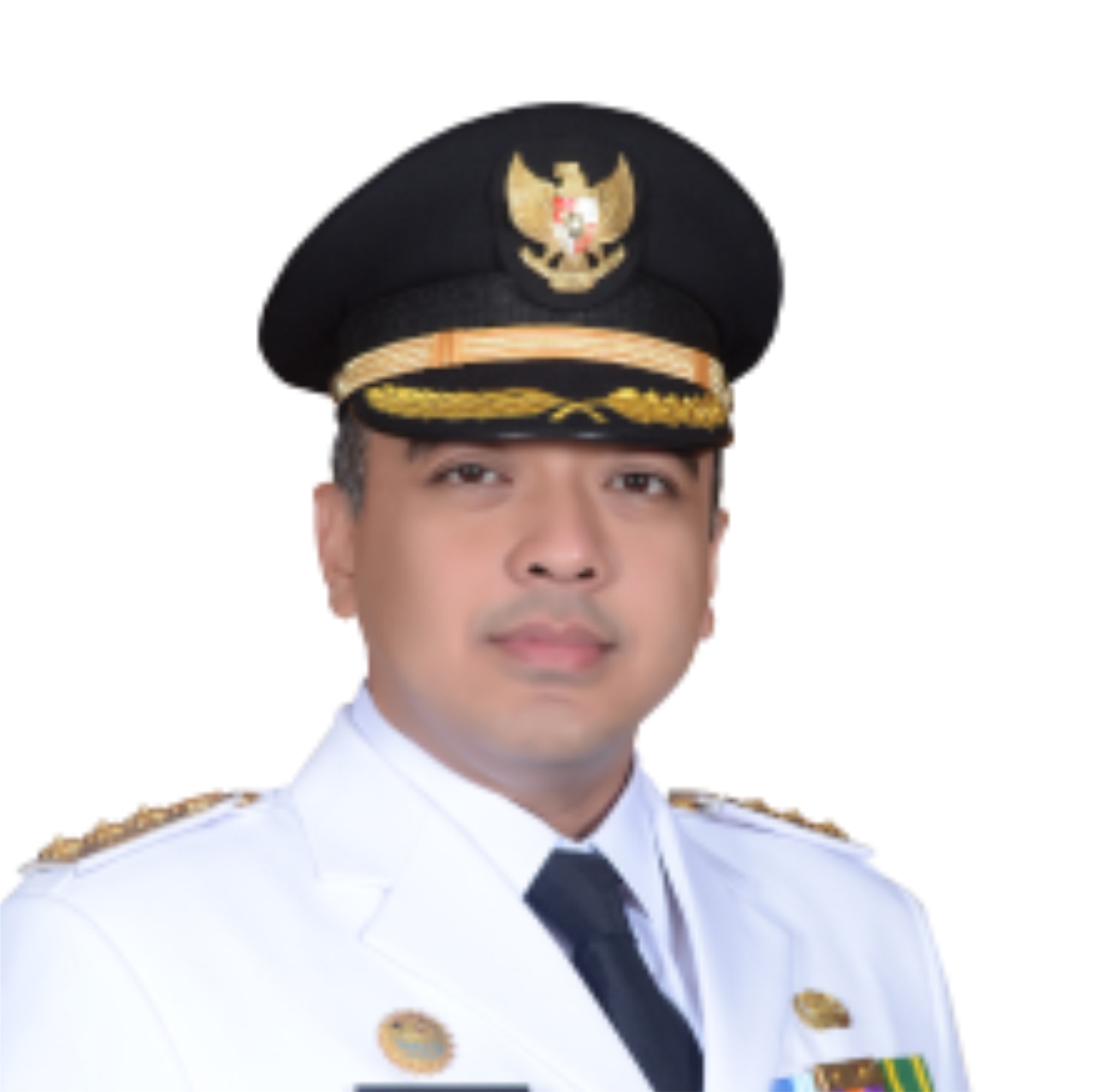
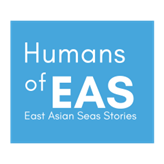

Dr. Zaki Iskandar SE. M.Si facilitated the establishment and strengthening the implementation of integrated Coastal Management of Tangerang Regency, Banten, Indonesia in support of the national and local programs and the Sustainable Development Strategy for the Seas of East Asia. His guidance resulted in the effective conduct of several regional capacity building activities including ICM Course, SOC training and hosting of the PNLG forum in Tangerang Indonesia.
He facilitated the implementation of the flagship program on Habitat restoration and Coastal Community Development with Gerbang Mapan (Coastal Community Development Movement). He spearheaded several innovative solutions for Tangerang Regency including: Bioconversion of Organic Waste with Maggot BS Online Based Tangerang Application; Reduce Our School Waste (KURASSAKI); Reduce Office Waste (KURASAKAN); School Based Sanitation (SANISEK); Islamic Boarding School-Based Sanitation (SANITREN); People's Movement to Overcome Dense Slum and Poor Areas (GEBRAK PAKUMIS) Gerbang Mapan (Coastal Community Movement).
Under his leadership, the ICM implementation in Tangerang Regency addressed priority issues in its coastal area including degradation of coastal ecosystems, pollution, coastal erosion, flooding, saltwater intrusion, lack of basic infrastructures in rural coastal areas, and lack of spatial planning and coordination in coastal development. In 2023, Tangerang Regency achieved the Level 1 Certification of its ICM System.
Ms. Nisakorn Wiwekwin has been actively involved in two major PEMSEA projects in Thailand: the Integrated Coastal Management (ICM) Project in Chonburi Province since 2001 and the scaling-up of ICM implementation in Thailand from 2017 to 2021.
She contributed to the development and adoption of the Chonburi Coastal Strategy, implemented in 2004 and facilitated the development and execution of Coastal Strategy Implementation Plans for both Chonburi Province and Saensuk Municipality.
Ms. Wiwekwin oversaw various activities in establishing ICM mechanisms across Chonburi, Rayong, Chanthaburi, and Trat provinces as part of the national scaling-up effort under the Department of Marine and Coastal Resources Act. Through her efforts, Chonburi Province has since developed an Oil Spill Contingency Plan, a revised ICM Plan, and an integrated coastal environmental monitoring plan while at the municipal level, Saensuk Municipality stands out as one of the few municipalities in Thailand with a local oil spill contingency plan.
She continues to engage in ICM research, community services, and policy development and currently serves on the technical committee for the ICM Learning Center at Burapha University, a member of the PEMSEA Network of Learning Centers.
Ms. Zhang Yanhua is an engineer at the Changyi City Marine Development Center in the People’s Republic of China. In 2012, she facilitated Changyi City’s application to the PEMSEA Network of Local Governments (PNLG) to engage in international projects and cooperation. By 2014, she mobilized stakeholders across institutions, industries, and disciplines to establish Integrated Coastal Management (ICM) in Changyi City.
In 2017, Ms. Zhang, with the assistance of project experts, led the design of a community-based ecological restoration model. This included creating a training program and restoring 60 hectares of damaged tamarisk. Her efforts also involved completing the PEMSEA project report, “The Remediation of Chinese Tamarisk in Changyi Marine Ecological Special Protected Area,” and devising a master plan for local ecological development and protection.
In 2022, Changyi City’s ICM System achieved PEMSEA ICM System Level 1 Certification, a milestone attributed to her role as the city’s leading auditee.
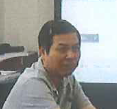
Shouji WU
Deputy Director, Natural Resources and Planning Bureau, Quanzhou City, Fujian Province (PEOPLE'S REPUBLIC OF CHINA)

Isdahartatie
Researcher, Center for Coastal and Marine Resources Studies, IPB University (INDONESIA)

Le Thi Thanh Huong
Official, Department of Natural Resources and Environment, Thua Thien Hue (VIET NAM)
Mr. WU Shouji led the implementation of PEMSEA‘s Scaling up SDS-SEA Program in Quanzhou from 2014 to 2020 as the Program Coordinator and Manager. He established the Integrated Coastal Management (ICM) mechanism and applied PEMSEA’s Integrated Information Management System in Quanzhou.
In 2018, he used the Management Effectiveness Tracking Tool (METT) to assess the management performance of local Marine Protected Areas (MPAs). By adapting ICM tools and management concepts, he contributed to improving the management of coastal regulations and strengthening the effectiveness of protected areas.
Through his efforts, Mr. Wu helped restore 160 hectares of mangroves. In 2015, Quanzhou achieved ICMS Level 1 Certification, becoming one of the first six cities in China to obtain the ICM certification. Mr. Wu’s continuous work has led Quanzhou to achieve ICMS Level 1 re-certification in 2020 and ICMS Level 2 Certification in 2022.
Ms. Isdahartati has been involved in PEMSEA-led projects in Indonesia from 2010 to the present. She was responsible for developing a pollution management plan for Citepus River and adjacent coastal areas, as well as addressing pollution reduction and waste management in Pelabuhanratu Bay. She also prepared a draft baseline and risk/vulnerability assessment report, offering recommendations for improving the Climate Change Adaptation and Disaster Risk Reduction (CCA/DRR) plans for Pelabuhanratu City, Indonesia.
Ms. Isdahartati facilitated a local State of the Coast (SOC) reorientation workshop for the Technical Working Group (TWG), key stakeholders, and potential data providers. She also contributed to the preparation of the five-year SDS-SEA Implementation Plan for Indonesia in 2019 and the National State of the Oceans and Coasts Report for Indonesia covering 2016-2018.
As the head of the PNLC Secretariat in Bogor, she coordinated with relevant agencies, departments, and stakeholders in planning, implementing, and monitoring the ICM program. She provided technical guidance and support for monitoring the implementation and impacts of ICM program activities and for applying tools for monitoring, evaluation, and reporting.
As a member of the Center for Coastal and Marine Resources Studies at IPB University, which is part of the PEMSEA Network of Learning Centers (PNLG), she has provided recommendations to strengthen existing management programs related to habitat conservation, rehabilitation, and alternative livelihood development in selected pilot sites, as well as the Integrated Coastal Management (ICM) program in Indonesia.
Ms. Le Thi Thanh Huong has served as the coordinator of PEMSEA activities in Thua Thien Hue Province, contributing to the development of the national Integrated Coastal Management (ICM) Strategy and the Sustainable Development Strategy for the Seas of East Asia from 2019 to 2020.
Her work involved strengthening inter-agency and multi-sectoral coordination for the implementation of the SDS-SEA and ICM in Thua Thien Hue Province. This was achieved through the establishment of the ICM Coordinating Committee and the Technical Working Group of the ICM Coordination Committee.
She played a key role in producing the vulnerability assessment report for Chan May - Lang Co, Thua Thien Hue Province. This report identified types of natural disasters and their risks to the area, including potential impacts on residential communities, infrastructure, ecosystems, and the environment, with consideration of climate change effects. It also assessed disaster risks and levels to propose appropriate solutions, particularly for vulnerable groups.
Ms. Le facilitated the development of the State of the Coast report with participation from the technical working group and ICM experts in the province, utilizing 35 indicators as guided by PEMSEA. She also supported the update of the coastal use zoning plan for Thua Thien Hue Province.
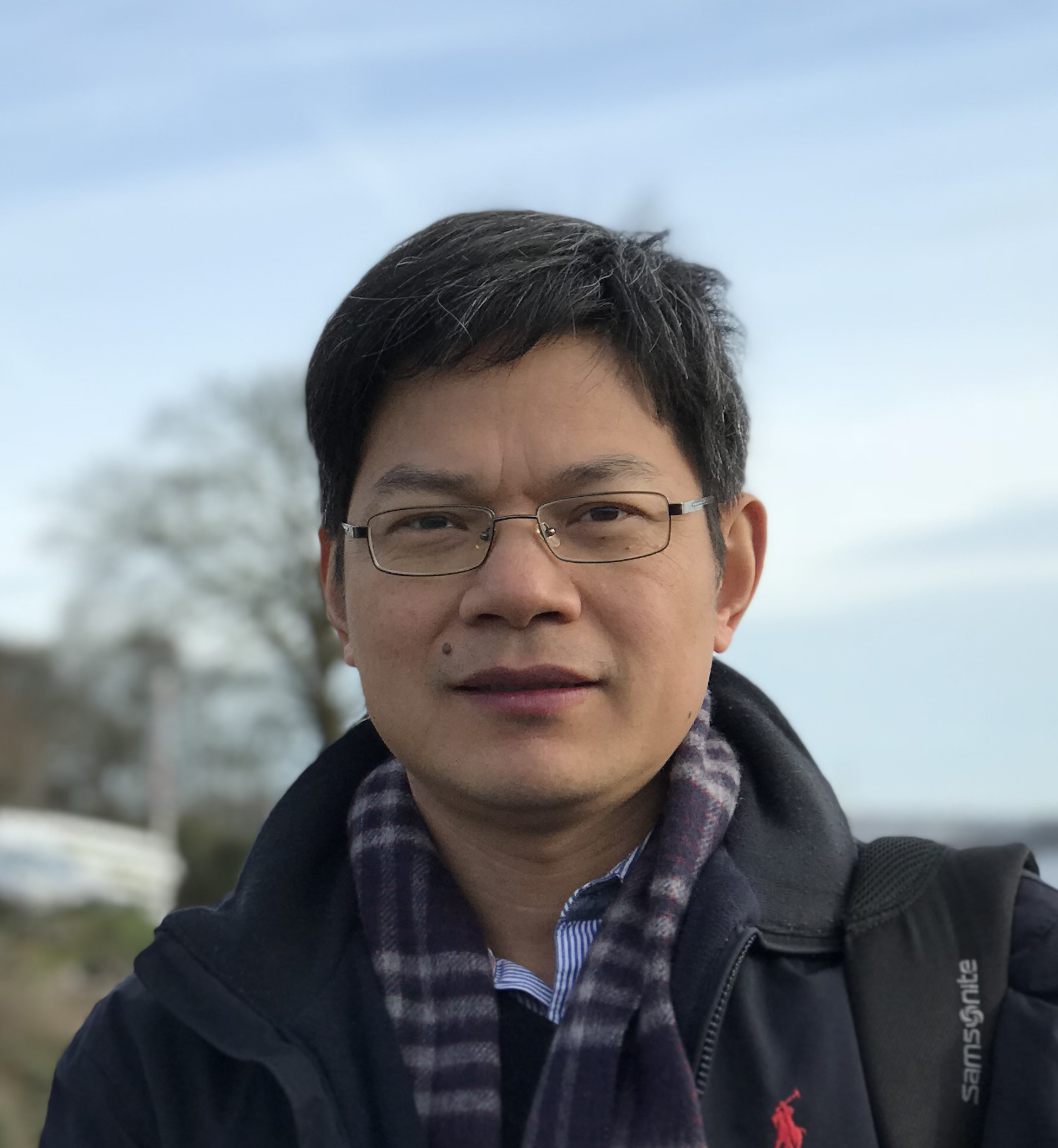
Qinhua Fang
Professor, Deputy Director, Coastal and Ocean Management Institute, Xiamen University (PEOPLE'S REPUBLIC OF CHINA)

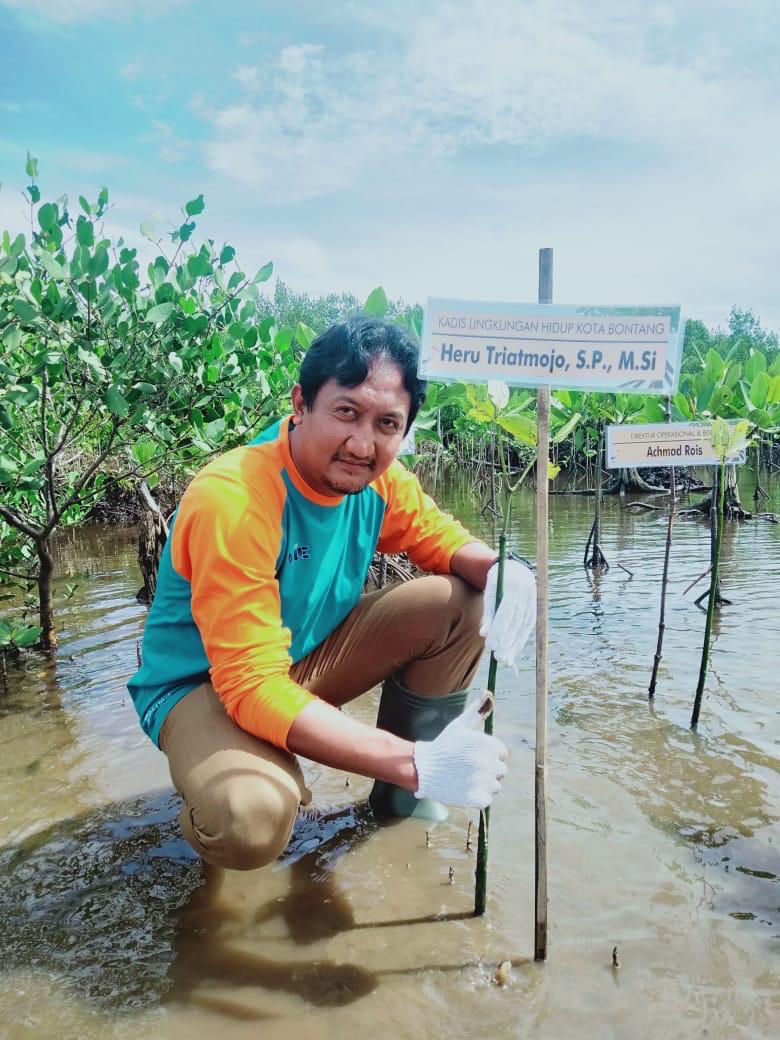
Heru Triatmojo, SP, M.Si
Head of the Bontang City Environmental Service, Bontang Regency (TIMOR-LESTE)
Dr. Fang has trained, lectured, and has written publications on Integrated Coastal Management, ecosystem restoration, and sustainable coastal development for several years now.
As the Deputy Director of Coastal and Ocean Management Institute (COMI) in Xiamen University, Dr. Fang successfully facilitated COMI’s recognition as a PEMSEA’s Regional Center of Excellence (RCoE) on sustainable coastal development. He is a tireless promoter of COMI’s international postgraduate program of Marine Affairs to a program with regional impacts for the younger generation of talents of ICM and sustainable coastal development.
Dr. Fang works closely with PEMSEA Network of Local Governments (PNLG) Secretariat to help improve its human and resource capacity, produce the annual PNLG Newsletter, and develop the PNLG Profile stories to promote ICM experience sharing in the region.
Dr. Fonseca has been actively involved in various PEMSEA initiatives since 2010. In 2017, he served as a consultant for drafting the State of the Coasts (SOC) Report for Manatuto Municipality.
His primary role was to facilitate stakeholder engagement in Manatuto Municipality, helping them identify and discuss key issues, challenges, and opportunities, and contribute valuable input to the SOC Report. This report was utilized by the national government, local NGOs, and international organizations to address critical issues such as overfishing, biodiversity and habitat loss, marine pollution, climate change, and lack of technical capacity.
In 2019, Dr. Fonseca was the principal adviser in developing the coastal strategy for Liquisa. This strategy included the establishment of Marine Protected Areas and Locally Managed Marine Areas to preserve marine and coastal biodiversity which also emphasized the improved application of existing laws and regulations, complemented by traditional knowledge.
Mr. Heru Triatmojo is the Head of the Environmental Service in Bontang City, where he has played a major role in policymaking and initiating the city’s implementation of the Integrated Coastal Management (ICM) program.
His initiatives include the Plastic Waste Handling Program in coastal and marine areas, the Sea Water Quality Monitoring Program and monitoring coral reefs, seagrass, and mangroves. He led a mangrove planting program in partnership with companies and local communities in mapped coastal areas and oversaw community education programs aimed at promoting plastic waste management and protecting marine ecosystems.
Mr. Triatmojo supervised and monitored wastewater discharges from companies situated in coastal areas. He developed policies on the use of environmentally friendly materials for seaweed cultivation and the carrying capacity of the city. He also encouraged youth organizations, such as Green Generation and Saka Kalpataru, to engage in environmental conservation activities. His efforts in managing municipal waste, green open spaces, and other environmental services earned Bontang City numerous awards.
He also encouraged companies in Bontang City to improve their performance in the Company Performance Rating Program. These milestones were achieved through cleaner production practices, low carbon emissions, and community empowerment through corporate social responsibility programs.

Marivic P. Esmas
Assistant Department Head, Provincial Government of Batangas Environment and Natural Resources Office (PHILIPPINES)

Nguyen Thanh Thao
Director of Science, Technology and International Cooperation, Viet Nam Geological Department (VIET NAM)
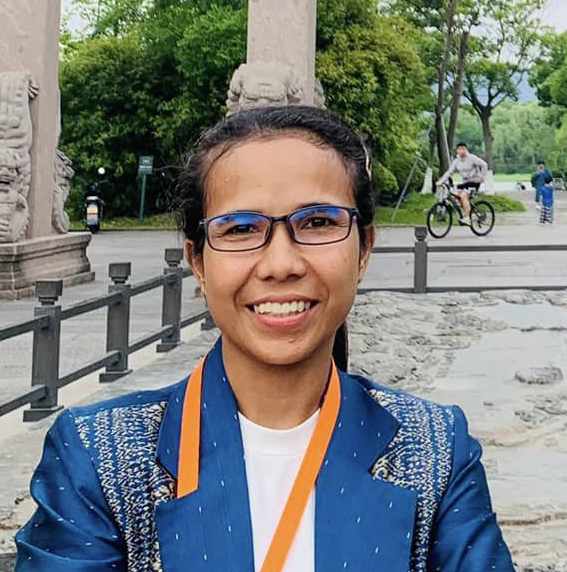
Ms. Marivic P. Esmas serves as the Assistant Department Head of the Provincial Government-Environment and Natural Resources Office (PGENRO) in Batangas. She oversees the operations of key divisions, including the Environmental Quality Monitoring Division, the Biodiversity Management Division, the Waste Management Division, and the Management Services Division. She also provided technical assistance to the governor to ensure the effective delivery of environmental and natural resource services, along with the provision of adequate facilities.
Ms. Esmas led the operation, upgrade, and expansion of the PGENRO Batangas Environment Laboratory, transforming it from a bay-wide monitoring facility in 1998 to a laboratory authorized by the Department of Environment and Natural Resources-Environmental Management Bureau. She initiated a comprehensive water quality monitoring program that covers the Calumpang River and its tributaries, the Palico and San Juan Rivers, the Calaca shoreline, Batangas Bay, Balayan Bay, and Marine Protected Areas (MPAs).
In 2021, Ms. Esmas spearheaded the documentation of the Batangas Province Integrated Coastal Management (ICM) System in compliance with the ICM Code which contributed to Batangas Province receiving the ICM Level II Certification from PEMSEA in 2020.
She also led the development of the Batangas Province Strategic Environmental Management Plan 2021-2045 and authored the ALA-EEE (Educate, Engage, Empower) Zero Waste Tiangge and Kapehan Project.
Dr. Nguyen Thanh Thao serves as the Director of Science, Technology, and International Cooperation at the Viet Nam Geological Department - NGA. She was instrumental in developing Viet Nam's Integrated Coastal Management (ICM) report, which has informed numerous coastal regulations and decisions across the country.
Under her leadership, Viet Nam has built and strengthened the capacity of ocean and coastal officials, as well as provincial leaders, on ICM and sustainable coastal development. Through her guidance, Viet Nam established an ICM network both within the country and across the region and partnerships for closer cooperation in implementing ICM initiatives.
Ms. Nay Sally has provided technical support to various working groups in Preah Sihanouk Province. Her expertise has been pivotal to the Smart City Working Group, the Marine Fishery Management Area Technical Working Group, the Coastal Development and Management Committee, and the Tourism Technical Working Group.
In 2006, Nay became involved with PEMSEA when she participated as a youth leader at the EAS Congress Youth Forum in Xiamen, China. In 2007, she was employed as a staff for the Project Management Office (PMO) in Preah Sihanouk Provincial Hall, serving as the secretariat for the Preah Sihanouk Project Coastal Committee.
Between 2007 and 2009, the PMO piloted the beach zoning management scheme at Ochheuteal Beach in Sihanoukville City, applying a beach management plan developed by PEMSEA in 2004. From 2006 to 2008, she was involved in implementing a community-based solid waste management project in Sankat 4, Sihanoukville City, where she handled community and local authority mobilization, community mapping, training facilitation, and project management and monitoring.
In 2021, she provided local assistance for hosting the Sea Festival and other national and international events, including the EAS Congress. Her work also included the management of the Island Entrance Fee collection and collaboration with UN-Habitat in Cambodia. She also contributed to shaping the Provincial Development Plan for 2020-2024 and the Provincial Sustainable Tourism Development Plan for 2021-2025.
Chindavanh Souriyaphack
National Coordinator and Manager, Sedone Integrated River Basin Management, Project ASEAN Working Group on Coast Marine and Environment National Focal Point, Ministry of Natural Resources, Department of Water Resources (LAO PDR)

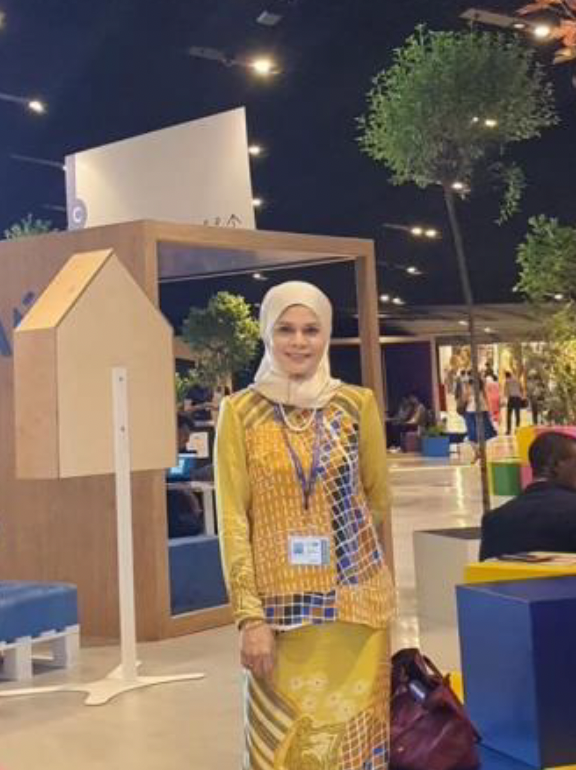
Nurasykin Mohamed Yusuf
Senior Assistant, Town Planner in Kuala Langat Municipal Council, Selangor (MALAYSIA)
Ms. Chindavanh Souriyaphack has been actively involved in sustainable development through the Sedone Integrated River Basin Management and SDS-SEA implementation from 2008 to 2020.
As the IRBM project manager and PEMSEA coordinator during the project preparation phase, she translated the English version of the National River Basin Strategy. She also contributed to the preparation of a rapid assessment of the area, which included community consultations to identify values, threats, and potentials for developing the area as an IWRM demonstration site. She actively conducted three sub-river basin management and planning efforts, establishing a water use committee in five villages, and upgrading the drinking water system in seven villages.
Currently, she serves as the National Coordinator and Manager of the Sedone Integrated River Basin Management Project and the ASEAN Working Group on Coastal Marine and Environment National Focal Point at the Ministry of Natural Resources, Department of Water Resources in Vientiane, Lao PDR.
Deputy Director General Kingkham Manivong is a legal expert specializing in natural resources law and policy, with a focus on water resources. He was involved in developing the Sedone Integrated River Basin Management Plan and implementing the SDS-SEA from 2008 to 2020. He also drafted the national strategy and action plan for water and water resources in Lao PDR and contributed to the updating of the Water Law, Water Strategy, and Water User Fee guidelines.
Ms. Nurasykin Mohamed Yusuf is a Senior Assistant Town Planner with the Kuala Langat Municipal Council in Selangor, Malaysia. For the past 16 years, she has focused on social development by engaging with communities in the Kuala Langat District.
From 2018 to 2020, she participated in the ASEAN SDG Frontrunner Cities Programme under the ASEAN Working Group on Environmentally Sustainable Cities (AWGESC), funded by the Japan-ASEAN Integration Fund (JAIF). She has also managed beach cleaning programs, mangrove conservation, and river basin management in partnership with the private sector, universities, and other stakeholders.
She is responsible for implementing the "Smart City, Safe City, Low Carbon" initiative in collaboration with various government departments, NGOs, private sectors, and local communities.
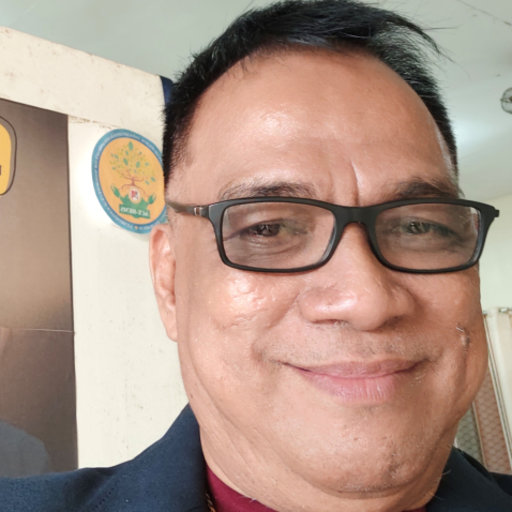
Jimmy T. Masagca
Professor 6, Catanduanes State University (Scientific Consultant and Adviser), PACIFIC TECH NGO (PHILIPPINES)
Marius L. Panahon
Aquaculturist II/Project Coordinator/Planning Officer-designate/Technical Officer, Fisheries Management Office,City Government of Calapan, Mindoro (PHILIPPINES)
Jinu Braz de Araújo
Student and Founder of Lenuk Tasi group (Sea Turtle Conservation), Universidade Nacional Timor Lorosa’e (UNTL) (TIMOR-LESTE)
Mr. Jimmy Masagca is a Professor of Biology and Educational Management at De La Salle University Dasmariñas and currently serves as the president of Pacific Tech (PIPTAS). He has led several mangrove restoration initiatives, including SURMABIOCON (Conserving and Reviving Mangrove Vegetation in Catanduanes Island, Philippines), which focuses on mangrove restoration, and the Mangrove Replantation for Biowalling/Biosheltering against Tidal Surges and AquaSilviculture projects, to support a community of fishermen and farmers.
SURMABIOCON implements a range of programs, such as establishing a telecenter in village elementary schools and barangay hall to keep the community informed about income-generating projects, including Tilapia Saline Aquaculture, Seagrass Growing, Sea Urchin Cages Growing, and Crab Condominium for Fattening.
Mr. Masagca also lectures on how local coastal communities and governments can address various challenges related to agri-aquaculture and marine protection. His lectures cover topics such as land and sea use zoning and the application of telematic gadgets.
Mr. Marius L. Panahon serves as an Aquaculturist II, Project Coordinator, Planning Officer-designate, and Technical Officer for the Fisheries Management Office of the City Government of Calapan, Mindoro, Philippines. He is also affiliated with the University of Batangas.
From 2001 to 2011, Mr. Panahon worked as the Coastal Resource Management (CRM) Coordinator for Calapan City under the Verde Island Passage CRM project, in collaboration with Conservation International Philippines. He was responsible for the development of the Integrated Coastal Resource Management Plan for the City of Calapan.
His work in 2013 focused on drafting the Marine Protected Area Management Plan for Calapan City. In 2011, he conducted a comparative study on the abundance of pristine and disturbed seagrass meadows in a 50-meter transect in Bancao, Puerto Princesa City. In 2010, he was involved in the fisheries resources assessment of Caluangan Lake, Calapan, Oriental Mindoro.
Mr. Panahon has been actively involved in numerous research projects and publications, both individually and as part of a team. In 2022 and 2019, he contributed to studies on the Integrated Watershed Landscape of Calapan Lake and Baruyan River in Calapan City, Oriental Mindoro. In 2017, he explored the potential of Siganid fishery as an aquaculture commodity in Caluangan Lake and Baruyan River in the same region.
Mr. Jinu Braz de Araújo is the founder of a youth movement group dedicated to turtle conservation. He has spearheaded numerous initiatives, collaborating with different organizations and youth groups that are actively engaged in turtle conservation and other related activities.
The programs initiated by various organizations in Timor-Leste and PEMSEA Regional activities converge on the shared objective of involving all individuals in ecosystem conservation endeavors, particularly concerning turtle conservation. In 2022, Mr. de Araújo established the youth movement groups aimed at safeguarding marine ecosystems and supporting coastal communities through various activities.
Lenuk Tasi (Sea Turtle) conservation is a marine turtle rescue center located in Kasait, Ulmera Liquica municipality with the aim of conserving and protecting sea turtles; and providing education, advocacy, and research about sea turtles. These initiatives included providing counseling services to coastal communities and organizing efforts to protect the marine environment.
He also played a role in educating and empowering the youth to contribute to the conservation of marine life, particularly focusing on the protection of endangered turtle species. Lenuk Tasi also collaborated with Sustainable Ocean Alliance (SOA-TL) to participate in the program Ocean Heroes Bootcamp and Lenuk Tasi.
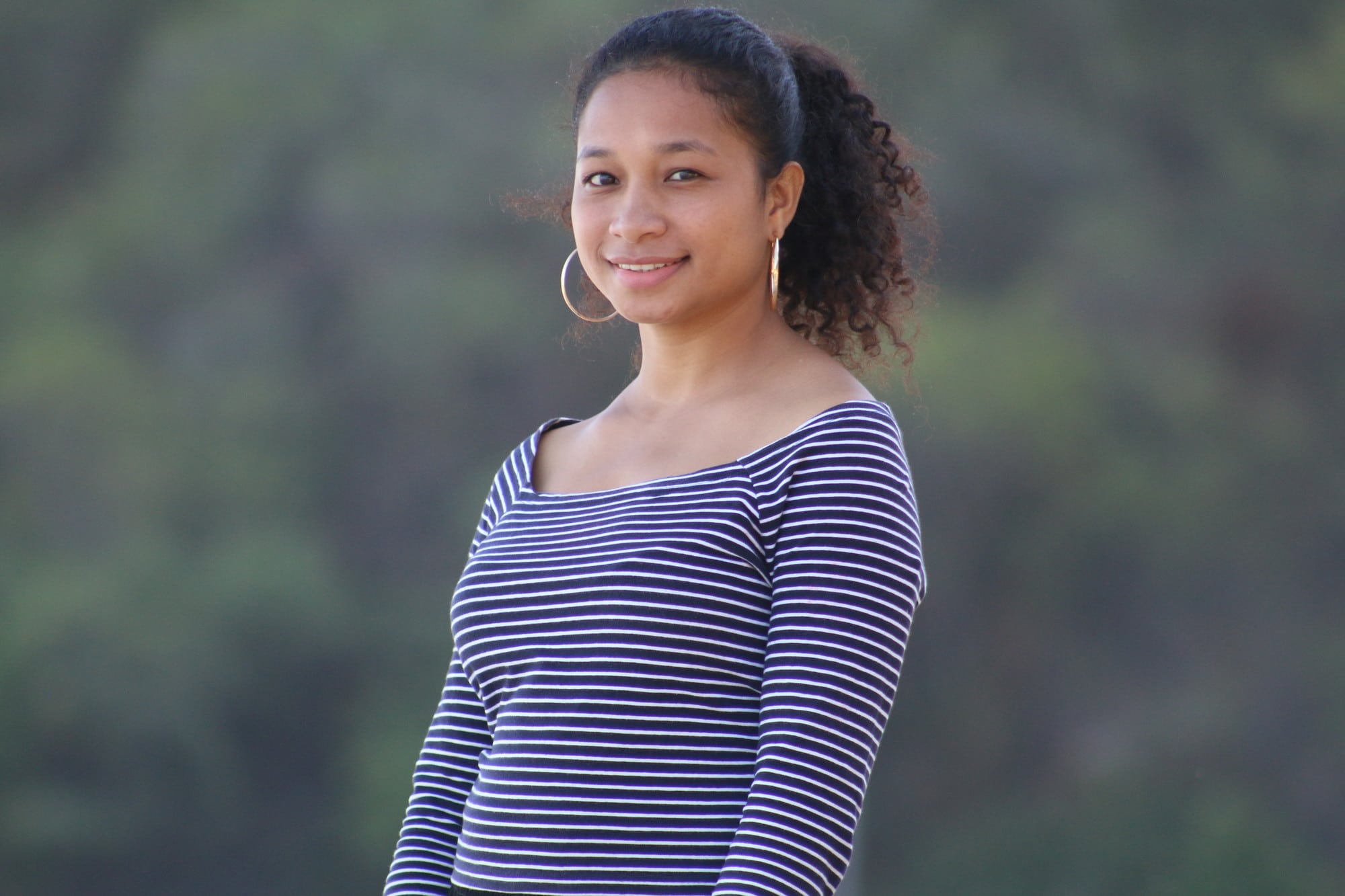
Dircia Sarmento Belo
Founder, Laudato Si’ Movement Timor-Leste Professional Staff, National Directorate of Climate Change (TIMOR-LESTE)
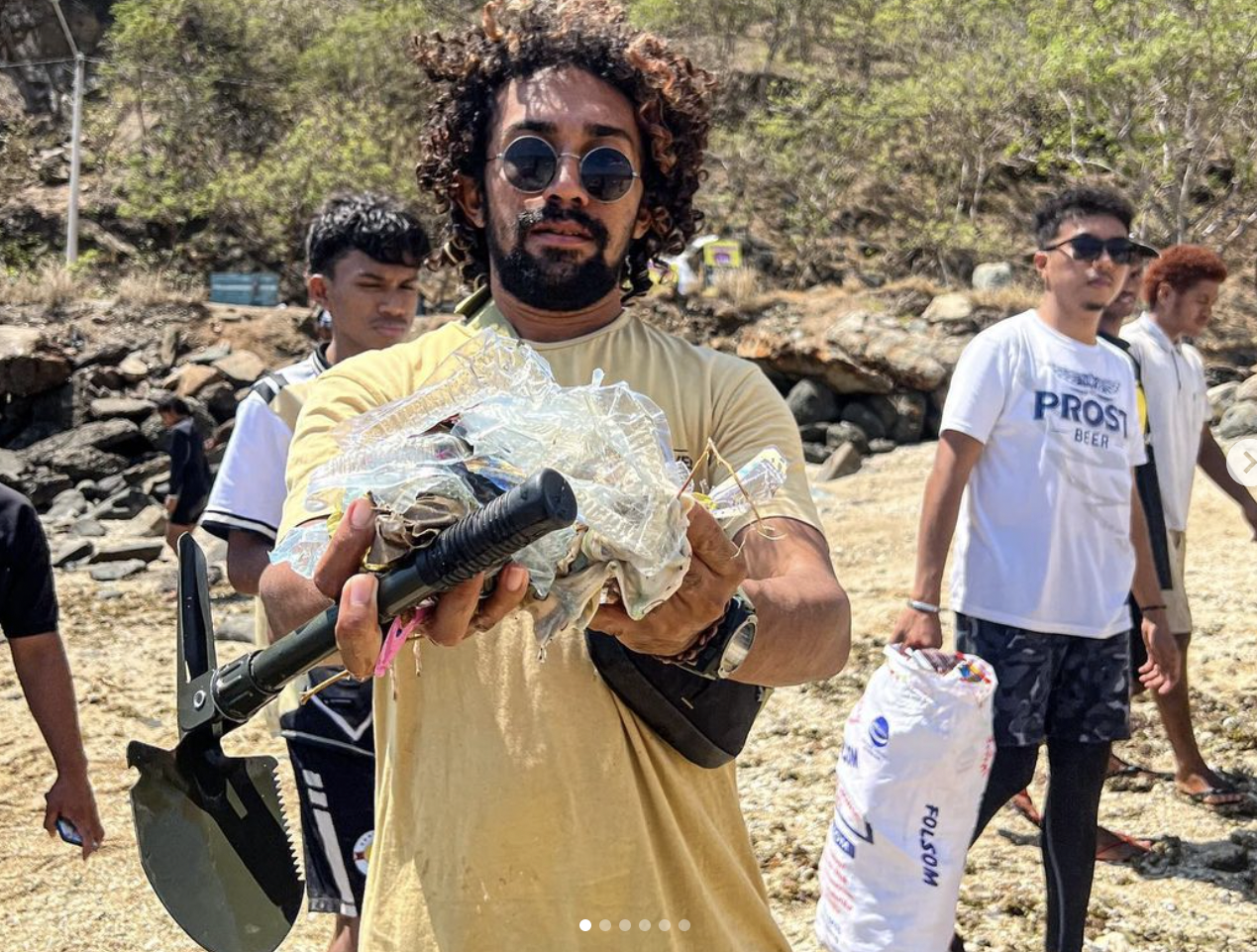

Choe Ho Jong
Researcher, Institute of Marine Science, Faculty of Global Environmental Science, Kim Il Sung University (DPR KOREA)
Ms. Dircia Sarmento Belo is the founder of Laudato Si’ Movement Timor-Leste which is inspired to educate the youth to take an active role in climate change advocacy.
In 2021, Ms. Belo organized the first-ever Local Conference of Youth (LCOY) on climate change in Timor-Leste, themed "The Voice of an Island." The conference brought the youth from various municipalities who participated by taking action in selected communities by managing waste, planting mangroves, and conserving spring water. In the same year, Ms. Belo marshaled a small number of volunteers for a community response post during the flooding calamity in Dili where they distributed food, drinking water, hygiene products, and household items to 700 flood-affected families, as well as emergency food boxes to families living in evacuation shelters.
In 2023, Ms. Belo represented Timor-Leste as an International Youth Delegate at COP28, the United Nations Climate Change Conference in Dubai, UAE. In January 2024, she and her team organized the Ocean Heroes Bootcamp at the Sustainable Ocean Alliance Timor-Leste where the youth actively participated in activities including Ocean Plastic Art, Ecosystem Conservation, Exploring Marine Life, and Reef Transplantation, empowering the youth to become advocates for marine conservation and sustainability.
Ms. Belo’s work has made her an inspiring figure for young people locally, nationally, and globally. She shares her journey through platforms such as the Laudato Si' Movement Timor-Leste, Sustainable Ocean Alliance (SOA) Timor-Leste, and with the National Directorate of Climate Change.
Mr. Joãozinho Dedito Martins serves as a Conservation Coordinator at Blue Ventures, where his dedication to fisheries and marine conservation significantly contributes to the advancement of Fisheries and Marine Sciences in Timor-Leste. His collaboration with the Ministry of Agriculture, Livestock, Fisheries, and Forestry has led to impactful engagement in conservation efforts, positively affecting the livelihoods of local communities.
His inspiring leadership has been evident in the successful implementation of initiatives such as the "Explore Marine Life by Snorkeling" program, including the innovative "Underwater Cinema" component. His personal success story has inspired youth and emerging ocean leaders to take action against marine pollution, particularly in dive sites like Cristo Rei and Dili Rock Site in Dili. Through his efforts, he has motivated a new generation to actively address environmental challenges in marine ecosystems.
Since Blue Venture began its work in Timor-Leste, Mr. Martins has been actively involved in spearheading efforts in fisheries and marine conservation. In 2023, he founded the Underwater Cinema, a youth-led volunteer group comprising passionate young Timorese individuals dedicated to marine conservation. In a nation surrounded by ocean, the underwater world remains largely unexplored by many Timorese due to limited access and knowledge. The Underwater Cinema aims to address this gap by providing opportunities for people to experience and understand marine life firsthand. Through their volunteer work, they seek to raise awareness and foster a deeper connection with the marine environment among the local community.
Mr. Choe Ho Jong has been involved in the Nampho Integrated Coastal Management (ICM) Demonstration Project since 2003, serving as the Chief of the Scientists Team responsible for developing and implementing the project. In the same year, he presided over the establishment, operation, and management of the National ICM Training Center of the DPR of Korea. This led to the signing of a semi-contract document by the PEMSEA Regional Planning Office and the General Bureau of Cooperation of International Organization (GBCIO) on 4 December 2003.
Mr. Choe developed the demonstration training program and lecture plans for the National ICM Training Center and sponsored its opening ceremony at Kim Il Sung University. Since the Center’s establishment, he has conducted a pilot training program to enhance the skills of ICM experts and staff in Nampho City, which took place in both Pyongyang and Nampho from 1-7 November 2004.
In addition, he organized the first domestic training aimed at increasing ICM capabilities in Nampho City from 19-24 September 2005, and led the adoption of a long-term action plan for the sustainable operation of the National ICM Training Center in August 2005.
He played a key role in improving the ICM education and training system, introducing "Integrated Coastal Management" into the teaching curriculum of the Faculty of Global Environmental Science at Kim Il Sung University in 2005. Furthermore, he selected ICM as a specialized field within the “Oceanography” curriculum at Kim Il Sung University’s postgraduate school in July 2005.
As the leader of three ICM projects, including the "Development of Coastal Integrated Management System in Wonsan Kalma Coastal Tourist Area (2021-2022)," he trained ICM Masters and managed training activities at the center, which have been conducted one to three times per year in various locations.


Kim Kwang Ho
Head of Division, Department of Environment Protection, Ministry of Land and Environment Protection (DPR KOREA)

Bounleuy Nanthavong
Director General, Department of Natural Resources and Environment, Sekong Province (LAO PDR)
Mr. Yun Kon Sam has worked for the Ministry of Fisheries of DPR Korea, overseeing the Sustainable Development Program of Fisheries for Wonsan since 2015. In 2018, he contributed to the development of the national policy for the Marine Resources Management Information System (MRMIS), which was one of sustainable development programs of fisheries under the National ICM Plan of DPR Korea.
Using the spatial planning method, the developed MRMIS contributed to the preparation of national policies for sustainable development of fisheries, including the annual fish capture planning and the conservation and enhancement of marine resources.
From 2021 to 2022, Mr. Yun was instrumental in preparing environmentally-friendly and sustainable fisheries development programs, which were integral to the National Green Mid to Long-Term Plan of DPR Korea. In 2023, he also contributed to the preparation of national policies and organization of mechanisms aimed to increase the marine culture products and conserving DPR Korea’s marine ecological environment.
Mr. Kim Kwang Ho coordinated and participated in the consultation and discussion among the governmental organizations and relevant stakeholders in developing the national policy and plan for protection and management of the national marine ecological environment; and developing and amending the relevant laws and regulations including:
Development of the “2019-2030 Environment Protection Strategy of the DPR Korea” (2019)
Amendment and supplement of the “DPR Korea Law on Natural Protected Areas” (2020)
Amendment and supplement of the “DPR Korea Law on Prevention for Marine Environmental Pollution” (2023) In addition, he was also in charge of monitoring water quality of over 40 cities (and counties) and estuaries in the eastern and western coasts of the DPRK; and conducting a survey of marine resources in the coastal waters.
Mr. Bounleuy Nanthavong is involved in the project River Basin Management of PEMSEA, focusing on the Sedone Integrated Water Resource Management conducted in the South of Laos. In 2018, he participated in PEMSEA’s capacity-building program as an intern in Manila, Philippines.
Mr. Nanthavong played an important role in initiating and implementing water resources management, particularly in Sekong Province. As Director General of the Department of Natural Resources of Sekong Province, he established partnerships with nearby provinces to foster transboundary cooperation with neighboring provinces in managing water resources.
His leadership contributed to the success of several projects in the Sedone River Basin, including the Sedone Origin Protected Area Modification and Reforestation project. Under his leadership, he spearheaded the installation of a water gravity system for communities in Nong Nok Village, alongside other socially profitable initiatives funded by PEMSEA.



